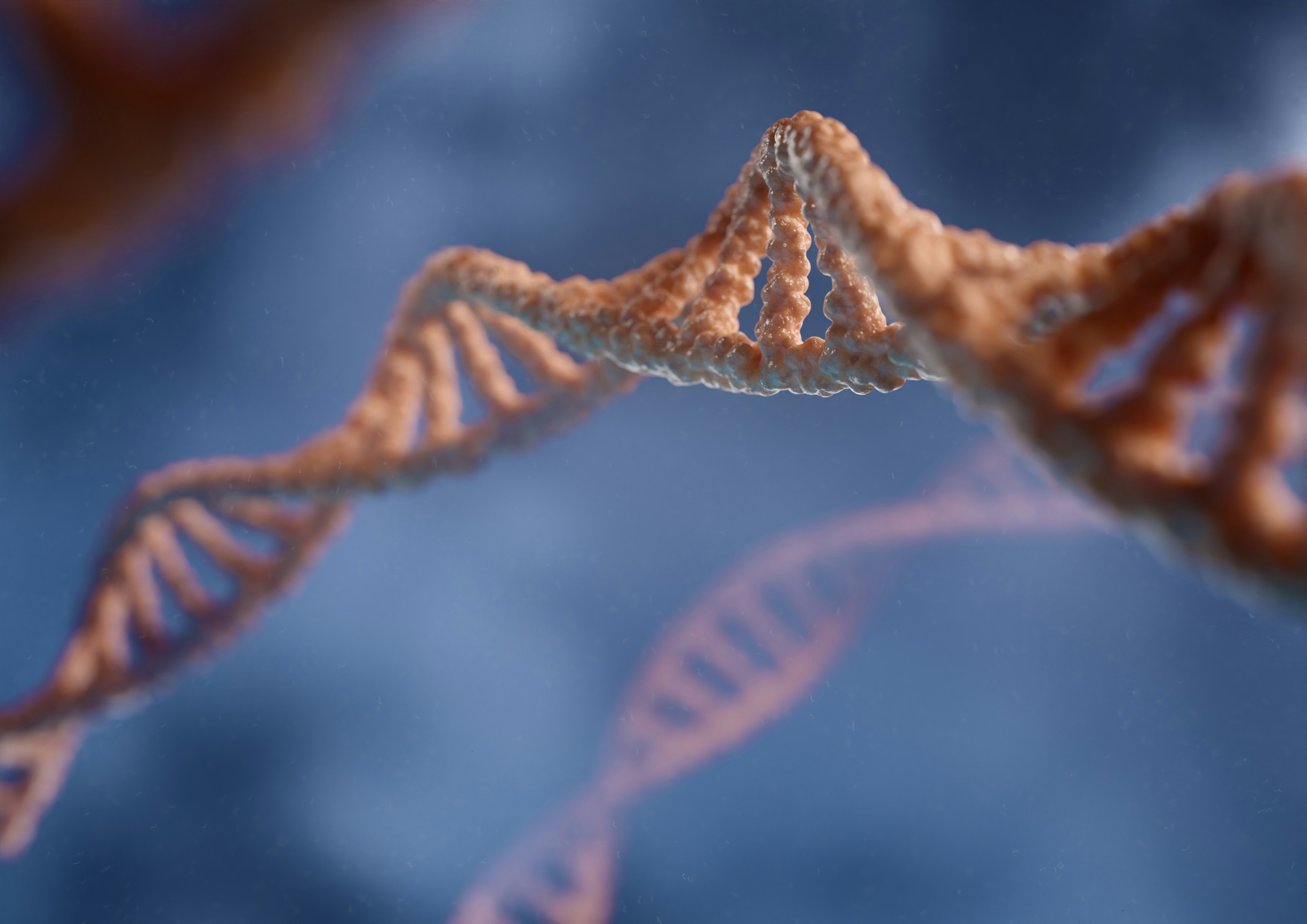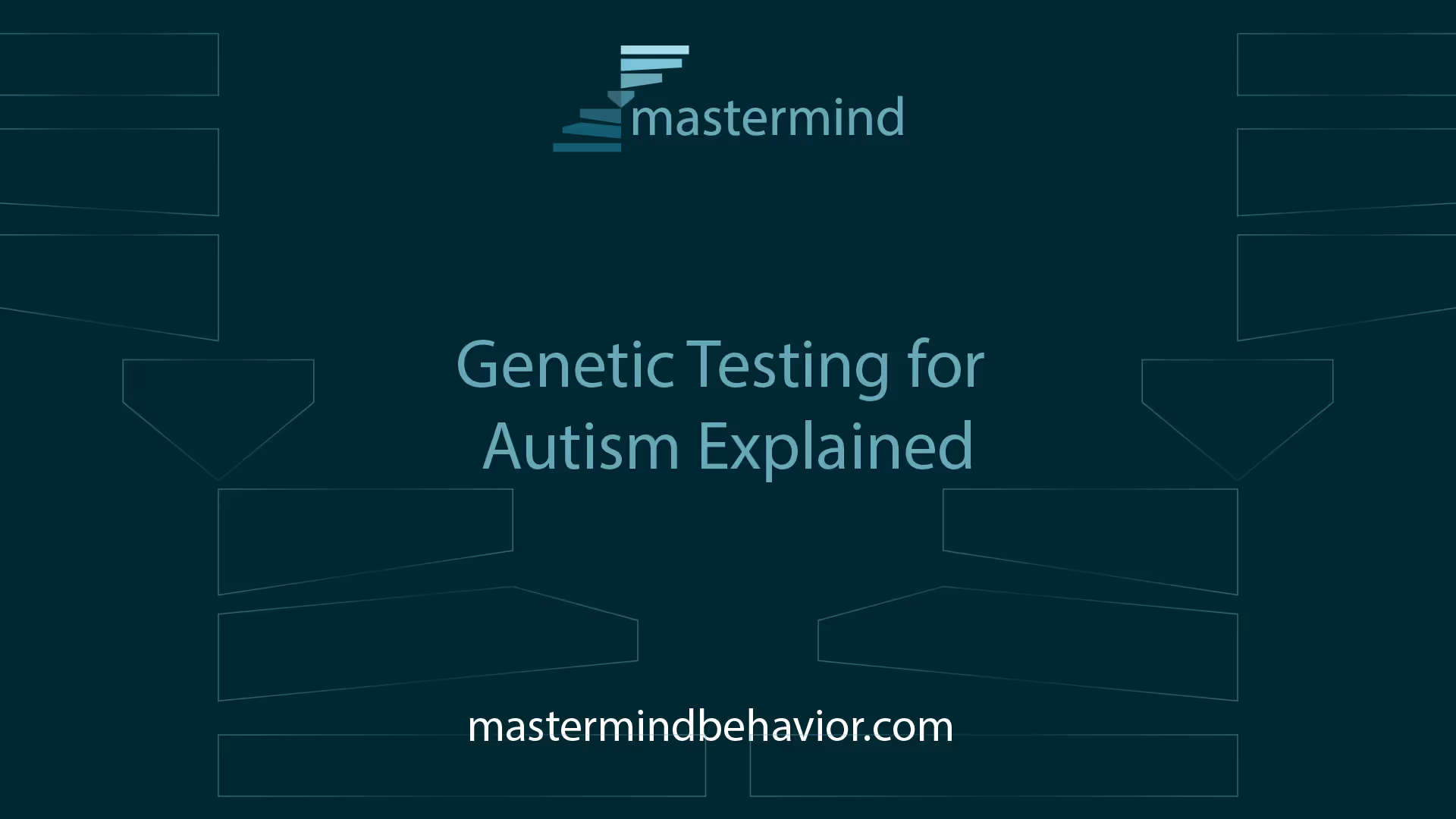Genetic Testing for Autism Explained


Understanding Genetic Testing
Genetic testing plays a crucial role in the field of medicine, particularly for identifying genetic conditions. In the context of autism, understanding these tests can help parents and guardians make informed decisions regarding their child's diagnosis and treatment options.
Importance of Genetic Testing
Genetic testing is essential for individuals with a prior behavioral diagnosis of Autism Spectrum Disorder (ASD) of unknown causes. It can uncover changes in chromosomes, genes, or proteins that may confirm or rule out a genetic condition. This knowledge is vital for developing personalized therapies and care plans tailored to each individual's needs.
The American College of Medical Genetics and Genomics (ACMG) recommends offering genetic evaluations to all individuals diagnosed with ASD, with specific testing performed when deemed necessary. Chromosomal microarray (CMA) testing is particularly advocated for ASD patients, along with Fragile X testing for males [2].
Types of Genetic Tests
Understanding the types of genetic tests available is crucial for making informed decisions. Here are some key genetic tests commonly used for autism-related evaluations:
Test TypeDescriptionApplicationChromosomal Microarray (CMA)This high-resolution test analyzes millions of single nucleotide polymorphisms (SNPs) to identify microdeletions or duplications. It offers the highest diagnostic yield for individuals with ASD [3].Recommended for all ASD patients.Exome SequencingThis method focuses on sequencing the protein-coding regions of genes, detecting de novo or rare inherited mutations that may contribute to autism.Ideal for identifying specific genetic variations.Fragile X TestingA targeted test for Fragile X syndrome, which cannot be detected by the other tests. It is crucial for individuals with developmental delays or intellectual disabilities.Important for males and those with specific symptoms.
Each of these tests can provide valuable insights into the genetic causes of autism and contribute to a better understanding of how to manage the condition effectively. For additional information about the genetic factors involved in autism, consider reading about genetic causes of autism and autism spectrum disorder genetics.
Genetic Testing for Autism
Genetic testing has become an essential tool for understanding autism spectrum disorder (ASD). This section discusses two primary methods used in this field: microarray testing and exome sequencing.
Microarray Testing
Microarray testing is the current standard genetic test for autism. It focuses on identifying genetic variations that may contribute to an individual’s autism diagnosis. According to Autism Speaks, this test reveals a genetic variation that potentially accounts for a person's autism in approximately 3 to 10 percent of cases.
One limitation of microarray testing is that it covers only a small portion of the DNA inherited from parents. Despite this, microarrays have become highly regarded in the field of genetic testing, particularly as new chromosomal SNP microarrays can detect abnormalities 100 times smaller than traditional methods. This advancement provides enhanced capabilities to identify genetic abnormalities associated with ASD, identifying both copy number variants and single nucleotide polymorphisms.
Testing MethodDetection RateGenetic CoverageMicroarray Testing3% - 10%Limited to small DNA portionsNewer Chromosomal SNP Microarrays30% or more (in developmental delay cases)Identifies smaller abnormalities
Exome Sequencing
Exome sequencing is a more advanced genetic test recommended for individuals with autism, especially for those with intellectual disabilities. This method examines the portion of the genetic code that encodes around 20,000 genes that play critical roles in human biology. According to Autism Speaks, exome sequencing can identify genetic variants linked to autism with a success rate between 10% to 30%, particularly in individuals with significant developmental challenges.
Exome sequencing can provide deeper insights into the genetic factors contributing to autism. It is increasingly recommended following chromosomal microarray testing, especially when more detailed genetic information is necessary.
Testing MethodDetection RateApplicationExome Sequencing10% - 30%Recommended for intellectual disabilities
Understanding these genetic testing methods is crucial for parents of children with autism. Not only do they aid in identifying potential genetic causes of autism, but they also guide further evaluation and possible intervention strategies. For more insights on the underlying causes of autism, refer to our article on genetic causes of autism. Additionally, consider exploring options for genetic counseling for autism to help navigate the implications of genetic findings.
Genetic Findings in Autism
Understanding the genetic components related to autism is crucial for parents navigating the diagnostic landscape of autism. This section discusses associated genes and genetic risk factors that contribute to the condition.
Associated Genes
Recent studies have revealed a significant number of genes linked to autism. A comprehensive study identified more than 70 genes that are strongly associated with autism, along with over 250 genes that show strong connections to the condition. This research involved over 150,000 participants, including 20,000 diagnosed with autism. The identification of these genes is critical as it enhances our understanding of the biological underpinnings of autism spectrum disorder (ASD).
CategoryNumber of GenesStrongly Associated Genes70+Genes with Strong Links250+
Additionally, researchers have pinpointed more than 100 autism risk genes in recent years, marking a significant increase from the previous decade. This growing body of knowledge is vital for understanding the genetic landscape of autism and for advancing potential autism gene therapy.
Genetic Risk Factors
The genetic landscape of autism is complex, with various shared genetic risk factors observed in other neurological and psychiatric disorders. Analyses of genes associated with both autism and schizophrenia suggest overlaps that may inform broader mental health discussions.
Genetics play a substantial role in the development of ASD, with estimates of heritability ranging from 50 to 90 percent. Genetic syndromes or chromosomal abnormalities can be present in up to 40 percent of individuals with ASD. This means that many cases may be tied to identifiable genetic conditions, emphasizing the importance of genetic counseling for autism for families exploring testing options.
The advancements in genetic testing technologies, including improved DNA sequencing and bioinformatics, have been instrumental in uncovering these genetic defects. Enhanced chromosome microarray technology aids in identifying significant genomic changes and pathogenic genes, furthering our understanding of the genetic causes of autism [3]. Understanding these findings is key for parents looking to comprehend the genetic factors that may play a role in their child's autism diagnosis.
Overall, genetic findings provide essential insights into autism and guide families through the complexities of genetic testing for autism. For more information on the genetic aspects of autism, explore our article on genetic causes of autism.
Benefits of Genetic Testing
Genetic testing for autism offers numerous advantages for families navigating the complexities of Autism Spectrum Disorder (ASD). From enhancing the diagnostic journey to enabling better planning for the future, the impact of these tests can be significant.
Diagnostic Journey
Genetic testing can streamline the diagnostic journey for parents seeking answers about their child's condition. Identifying genetic causes can clarify the underlying reasons for autism, reducing the time and uncertainty often associated with diagnosis. For individuals previously diagnosed with ASD of unknown origins, genetic testing can reveal changes in chromosomes, genes, or proteins that may confirm or rule out a genetic condition.
Diagnostic BenefitsDescriptionReduced TimeGenetic testing can shorten the period it takes to obtain a diagnosis.Clearer UnderstandingIt provides insights into the possible genetic factors contributing to the autism diagnosis.Personalized ApproachResults can guide healthcare professionals in developing tailored therapies and care plans.
By expediting the diagnostic process, families can access appropriate health monitoring and treatments sooner for any related health conditions, potentially enhancing their child's quality of life.
Planning for the Future
In addition to assisting in diagnosis, genetic testing plays a crucial role in planning for the future. Understanding a child's specific genetic profile allows families to create informed care strategies and access targeted therapies based on individual needs. For example, certain genetic conditions associated with autism, such as GLUT1 deficiency, require immediate medical interventions, like a ketogenic diet, to effectively manage seizures and other symptoms. Delays in diagnoses can worsen long-term outcomes [2].
Planning AdvantagesDescriptionEarly InterventionGenetic findings can prompt timely medical interventions tailored to specific conditions.Therapeutic DevelopmentUnderstanding genetic factors can guide the creation of treatments, improving therapeutic options for the child.Family SupportGenetic counseling services can assist families in understanding the implications of test results and available resources [6].
Furthermore, genetic testing contributes to the advancement of research and therapeutics in autism, fostering hope for improved treatment outcomes. Families become empowered decisions with knowledge, which can improve the overall trajectory for their children with autism.
Recent Advancements in Research
Recent research advancements have significantly enhanced the understanding of genetic factors related to autism. This section will focus on identifying autism risk genes and exploring the genetic variations associated with autism.
Identifying Autism Risk Genes
In recent years, researchers have identified over 100 autism risk genes, a notable increase from findings in the previous decade. This surge in discovery indicates a growing comprehension of the genetic underpinnings of autism spectrum disorder (ASD). For instance, a comprehensive study involving over 150,000 participants revealed more than 70 genes strongly associated with autism and over 250 genes that have significant links to the condition, with 20,000 participants diagnosed with autism Mount Sinai.
Number of GenesType of Association70Strongly associated with autism250Strong links to autism100Identified risk genes (recent years)
Furthermore, identifiable single-gene conditions are estimated to account for 15% to 20% of all autism cases National Fragile X Foundation. This highlights the relevance of genetic testing in understanding and diagnosing autism.
Genetic Variations and Autism
The exploration of genetic variations has revealed a complex landscape in which numerous gene variants may be implicated in ASD. Whole-genome sequencing (WGS) studies, examining families with autism, have detected both de novo (new) mutations and rare inherited genetic variants. In one study, deleterious de novo mutations were identified in six out of 32 families, while additional genetic alterations were found in ten families. This demonstrates the potential of WGS to uncover autism risk genes more effectively than earlier genetic testing: an essential step forward in autism genetics research NCBI.
With hundreds of gene variants linked to ASD, the genetic investigation is complicated by the variability in risk effects. Many of these gene variants are also related to other conditions, making it challenging to pinpoint autism-specific variants. Genetic syndromes and chromosomal abnormalities are noted in up to 40% of individuals with ASD PubMed Central. Overall, genetics play a crucial role in the development of autism, with heritability estimates ranging from 50% to 90%.
For parents seeking further information or support regarding the genetic aspects of autism, resources such as genetic counseling for autism can provide valuable guidance in understanding their child's genetic profile and its implications.
Ethical Considerations
As the use of genetic testing for autism becomes more common, ethical considerations arise, particularly surrounding risk communication and the psychological impacts of testing.
Risk Communication
Effective communication about genetic testing and its associated risks is crucial. It involves conveying scientific findings in a manner that is clear, relevant, and not misleading. There are significant challenges in communicating risks, especially in light of historical controversies, like the "refrigerator mother" hypothesis and modern discussions about vaccination. These past debates highlight the necessity of ethical practices when discussing autism and its causal factors [8].
Key aspects of risk communication include:
Effective approaches to conveying risk ensure that families seeking answers are not left confused or misinformed.
Psychological Impacts
The psychological implications of genetic testing are critical to consider. Although research indicates that there are generally no serious adverse psychosocial impacts associated with genetic testing in children, it's still a sensitive matter for many families.
Parents may experience a range of emotions when faced with test results, from relief at obtaining an explanation to anxiety about implications for their child's future. The complexity of genetic information can also lead to misunderstandings and emotional distress.
Professional guidance has emerged to help navigate these issues, particularly regarding:
It's crucial to approach the topic of genetic testing with sensitivity and to provide resources that assist in understanding the findings.
References
[2]:
[3]:
[4]:
[5]:
[6]:
[7]:
[8]:
[9]:
Recent articles

ABA Therapy To Reduce Escape Maintained Behaviors
Effective Strategies in ABA for Addressing Escape-Driven Behaviors

How ABA Therapy Supports Children In Building Long-Term Friendships
Fostering Lifelong Bonds: The Role of ABA in Social Skills Development

Creating Visual Supports At Home To Enhance ABA Learning
Empowering Home-Based ABA with Visual Supports

Tips For Maintaining Motivation For Children During ABA Programs
Enhancing Engagement and Success in ABA Therapy

Helping Children With Autism Develop Self-Help Skills At Home
Enhancing Independence Through At-Home Strategies for Children With Autism

Understanding What Is ABA: Principles Families Should Know
Unlocking the Power of ABA in Autism Support



